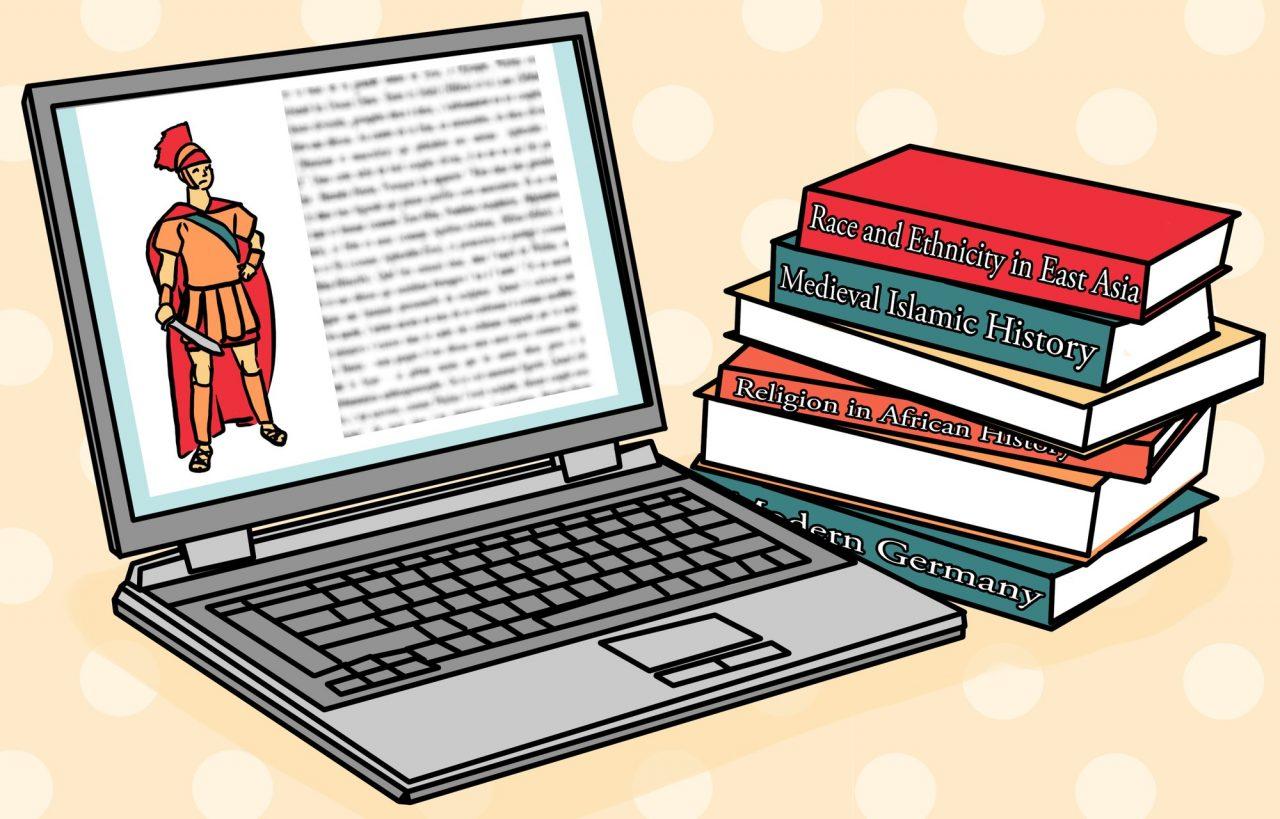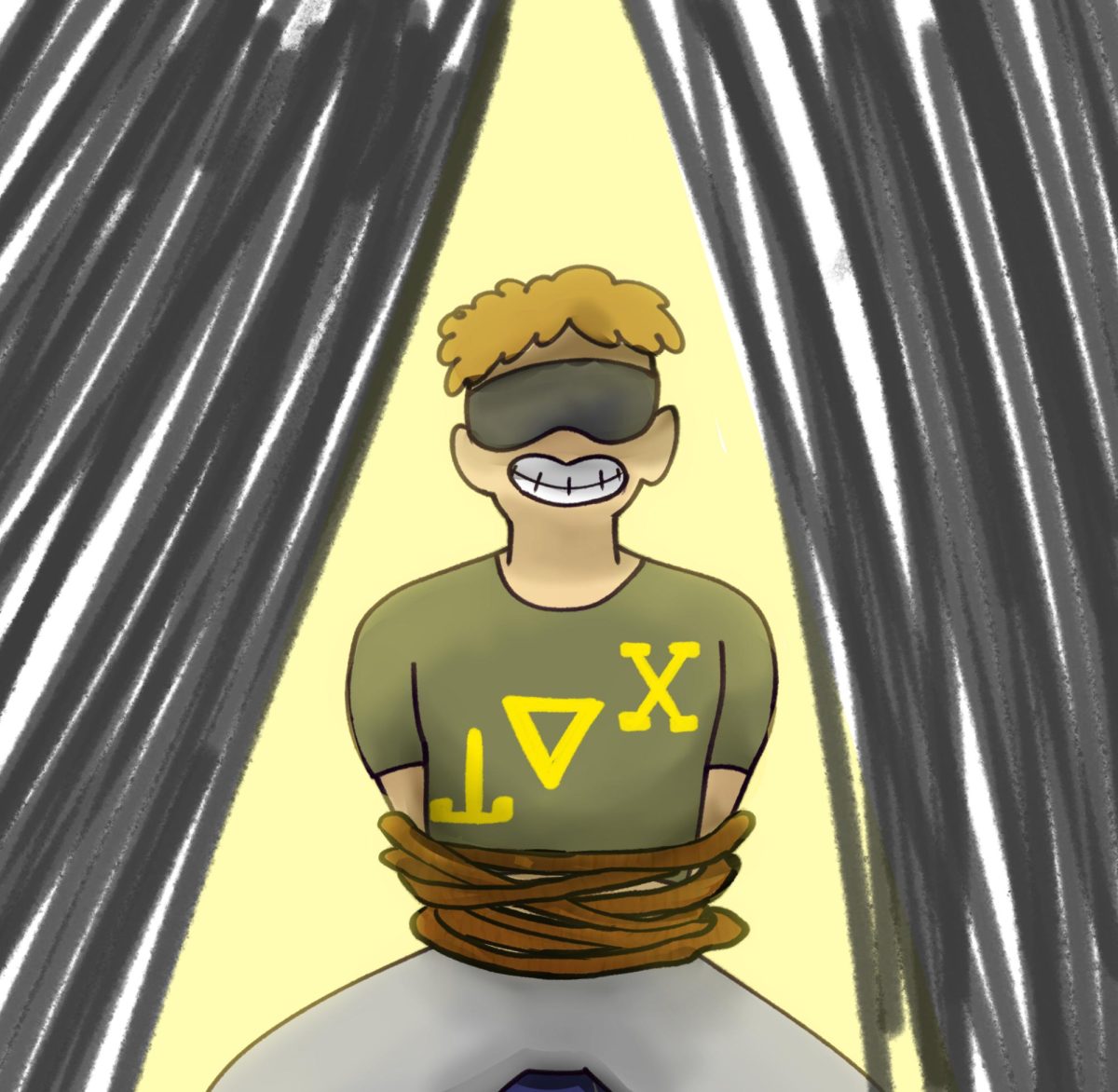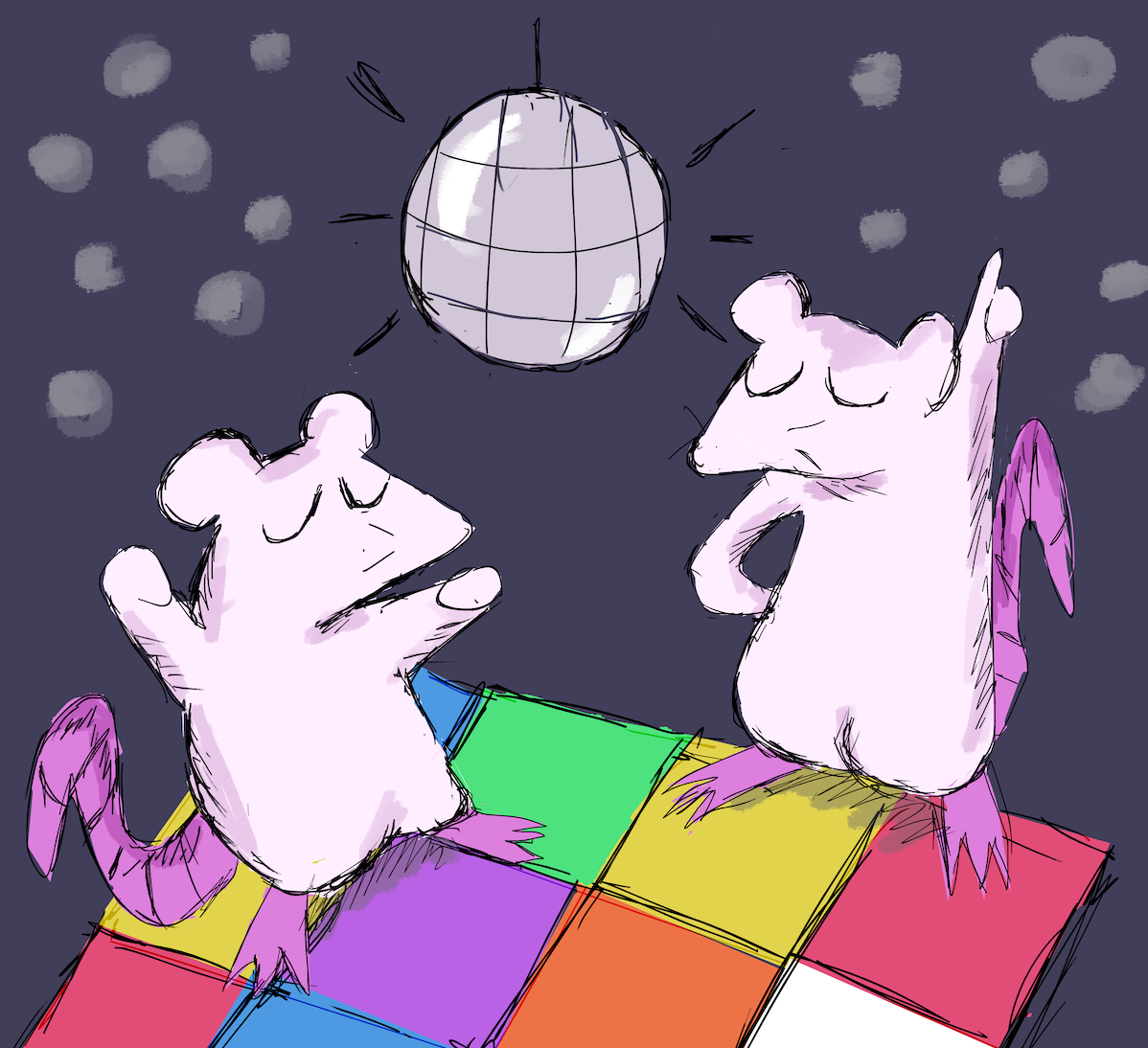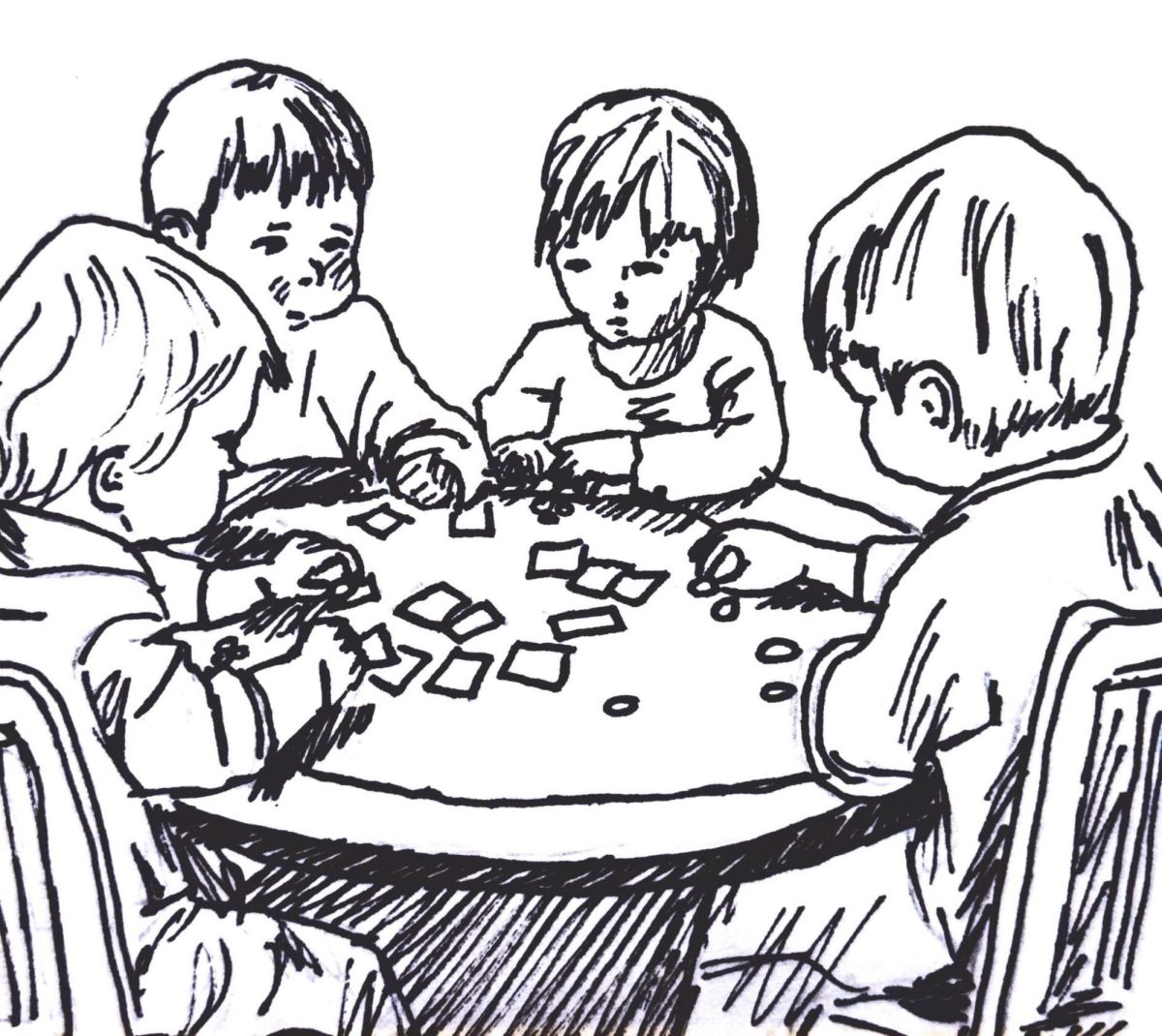Illustration by Andrea Nebhut
History and historians are important in understanding the contexts of our modern world. They help us place movies and political events into context, and without the careful study of the past, myths that the Civil War was about anything other than slavery would still remain unchallenged.
From the Washington Post’s “Made By History” to the twitter tag #HATM — Historians at the Movies, a group of historians who live-tweet movies on Netflix every Sunday to the #Twitterstorians (historians on Twitter — yes, they are nerds, and it is lovely), historians are finding more and more ways to interact with and help shape the conversations that arise in public discourse.
Historians are reaching out in varied and wonderful ways via social media, podcasts and op-eds, and they are trying to show how the past has shaped today’s world.
A particularly popular medium has been podcasts, ranging from Backstory, Past Present and Ben Franklin’s World. While these examples are very America-centric, they provide active examples of historians’ attempts to educate the public on the relationship between the past and the present. Indeed, Past Present looks at events in a given week’s news and works to give the historical context for those events. The podcast Backstory takes a more thematic, but still relevant, approach to sharing news. For example, while Backstory might have a story on the history of immigration enforcement in America, Past Present talks about current events — the most recent episode discusses both Howard Schultz and Ted Bundy.
When it comes to op-eds, you have Julian Zelizer, a Princeton University professor of history, who contributes to CNN. Furthermore, Nicole Hemmer — a professor at the University of Virginia’s Miller Center — is a Vox columnist, helped found Made By History and is one of the founders of Past Present. In essence, historians are reaching out through a variety of mediums to share their knowledge and expertise. They are not holding themselves apart in some ivory tower; rather, they are actively engaged with people and fervently active to spread historical knowledge.
Following historians in the public spheres can be a great way to inform yourself on the past. … Or you can take a class here. Trinity has historians who teach on China, the Native American experience, the African experience, U.S. Political History, Medieval Europe and so much more.
History teaches us about how we got here and the forces that have lead to our modern world. If you’ve looked at present-day politics and wondered, “How did we get here?” — take a history class.
From history we can learn other ways of living and other ways of thinking. By learning history and learning about the lives of the past, we are better able to understand our own lives and our own society. If you want to grow to understand both the world around you and yourself, actively seek out historical scholarship — maybe take a history class and learn to think like a historian. It is an invaluable skill.






